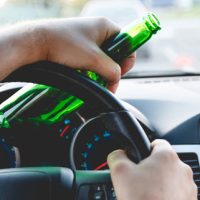Getting Punitive Damages for DUI Accidents

Punitive damages are among the hardest types of damages for an injury victim to get. They are rare and difficult because their purpose is so different. Unlike other forms of damages, which are intended to make a victim whole, or compensate a victim for losses, punitive damages focus on the Defendant—specifically, to punish the Defendant for its behavior.
Getting Punitive Damages
To get punitive damages in Tennessee, you have to show that a Defendant acted recklessly, maliciously, or intentionally—a higher burden than just standard negligence.
Making it even harder to get these damages, you must show that the Defendant acted the way it did, by clear and convincing evidence—a higher burden than the standard preponderance of the evidence (51% of the evidence) that applies in most civil cases.
Why DUI is Different
But cases involving people who drive under the influence and injure people, are a bit different. Yes, the same standard above for punitive damages cases still applies. But if a victim can show that a Tennessee driver had a blood alcohol level over .08 at the time of the accident, or otherwise, can show some other way that the Defendant was driving under the influence, the victim can get punitive damages.
Put another way, showing that someone was driving under the influence in your drunk driving accident case, satisfies the high burden necessary to prove your right to obtain punitive damages.
If you cannot prove that the Defendant had the necessary threshold blood alcohol level, you can still show that the driver was under the influence, and because of that, was driving more than negligently, but rather, was acting recklessly or intentionally.
One other benefit of an award of damages that stem from a DUI—no matter what kind of damages, punitive or otherwise—is that the bankruptcy laws don’t allow someone to discharge (erase) a judgment for money that stems from a DUI in bankruptcy court.
Relation to Criminal Charges
Note that someone who drives under the influence, may also have criminal charges brought against him or her. In many cases, the driver may cut a plea deal, not get convicted, or have the charges dropped—all decisions that are up to the state attorney, or a jury.
Your personal injury case is unaffected by what happens in the criminal court. In other words, the Defendant could not be convicted by a jury, but that would not stop you, as the injured victim, from receiving punitive damages in your civil personal injury lawsuit.
In criminal court, the standard to find someone guilty is beyond a reasonable doubt—the highest standard. So it is possible for someone to be acquitted in criminal court, but to be liable in a civil action for the exact same drunk driving incident.
Caps on Damages
Tennessee does have a cap on the amount of punitive damages that you can recover. You can get either twice the amount if your “normal” (non punitive) damages, or $500,000, whichever amounts to the greater award.
Injured by a drunk driver? Call the Knoxville personal injury attorneys at Fox Farley Willis & Burnette, PLLC, for help today.
Source:
casetext.com/statute/tennessee-code/title-29-remedies-and-special-proceedings/chapter-39-compensation-for-economic-and-noneconomic-damages/section-29-39-104-punitive-damages/analysis?citingPage=1&sort=relevance#:~:text=In%20general%2C%20punitive%20damages%20are,to%20avoid%20liability%3B%20the%20defendant











